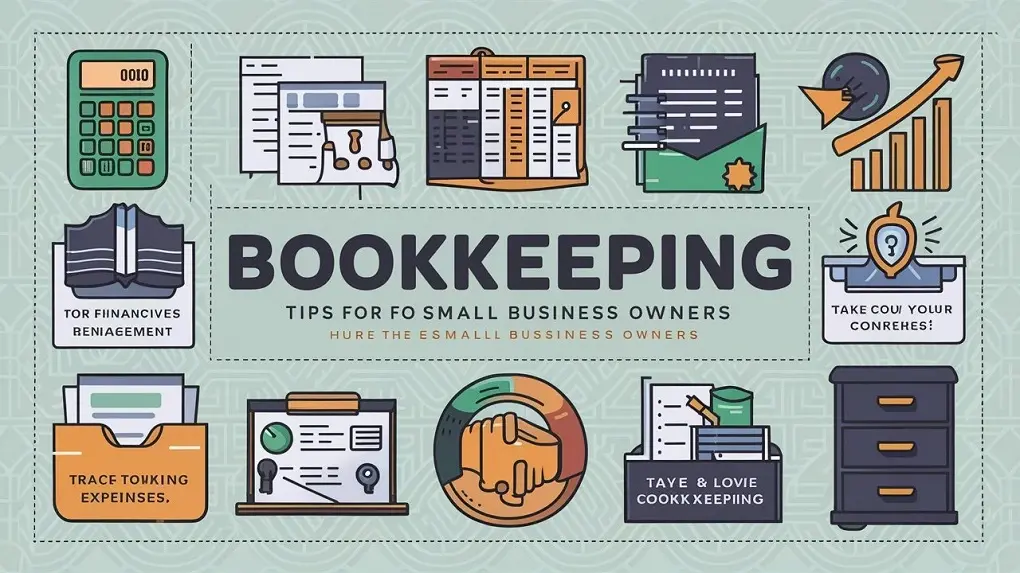To the owners of small businesses, there are many tasks to accomplish. With operation management, employee management, marketing, and product/service management, it can be easy to neglect the importance of bookkeeping. But, managing your money is something that cannot be overemphasized when it comes to small business. Without an understanding of your financial situation, you cannot make sound decisions about the future of your business.
These are some of the fundamental bookkeeping tips that can help you gain financial transparency and achieve more growth for your business.
1. Most business owners fail to separate their personal and business finances, which can lead to many problems in the future.
To start with, ensure you open different accounts for your business and personal operations. It is always wrong to combine the two especially when dealing with official business. Having separate accounts is easier for record-keeping in the long run.
It is advisable to enrol your business at the IRS to obtain an Employer Identification Number (EIN) to open a business bank account. Record all revenues, costs, assets and liabilities related to the company in the business account. Only conduct personal business transactions using your accounts.
2. Real-Time Monitoring of Transactions
In a bookkeeping system, record any expenditure and revenue as soon as the transactions take place. This includes checks, debit/credit charges, e-transfers, invoices etc Yes, it is a bit time-consuming initially, but tracking them in real-time saves a lot of unnecessary stress when you try to remember all the charges you made that you had to estimate at the end of the month.
Such transaction tracking applications are easy to use, thanks to various bookkeeping software, including Quickbooks. The IRS also expect supporting documents for every entry, so scan and upload receipts and invoices into your bookkeeping software.
3. Reconcile Accounts Frequently
The amounts recorded in business bank statements and credit cards differ from the balances recorded in the bookkeeping systems. Such relates to posting of transactions such as delayed posting, omitted entries, charges, automatic deductions and so on.
Ensure accounts are balanced every month by comparing the statements with the bookkeeping system to identify any differences. This makes sure all the transactions look good and avoids such scenarios where there are shortfalls down the road.
4. Track Receivables and Payables
Do not forget who owes you or whom you owe. Issue invoices to clients immediately after the delivery of products and/or the execution of services. Record them in your books as receivables. Clients should be contacted and reminded about the outstanding balances periodically.
Likewise, monitor vendor bills and payments. When bills arrive, mark all of them as payables. Group payables by due dates and ensure that payment is made before the due dates to avoid incurring penalties. This means that an accurate open receivables and payables balance is useful in ensuring cash flow visibility.
5. Check Profit and Loss Statements frequently
An income statement (also known as a profit and loss or P&L) shows the performance of the business at a particular point in time. Ensure that you analyze your P&L at least monthly to gain insights into sales volumes, efficiency ratios and net income. Make comparisons to previous periods and search for large fluctuations in revenues or costs.
Focus on movements that are higher than 10-15%. Maybe you introduced a new supplier for your company or secured a large customer for your business. Or maybe there was a low demand period or equipment breakdowns that took longer to fix. Knowing these changes helps plan better for the future by making better business decisions in the future.
6. Use Accounting Software Efficiently
Utilize all the features of the accounting software you are using or the bookkeeping system you have adopted. For instance, categorize transactions for performance by product, service, project, customer, vendor, contractor, or location.
Design financial reports and boards to extract information about the budget and actual spending, key revenue products, valuable customers, cyclic expenses, etc. Tasks such as bank feeds, invoicing and payments should be done using automation tools. The right software grows with your business.
7. About Basic Bookkeeping Best Practice
As for the workload, it is distributed between software and you, so you should be familiar with the basics of bookkeeping. Understand the framework of accounting basics as well as the aspects such as double entry, accrual/cash basis, debits/credits, balance sheets, inventory handling and depreciation.
Knowing the terminology, concepts, and workflows helps structure records, ask proper questions during the analysis of reports, identify mistakes, and explain the process to accountants and advisors.
8. Involve Your Accountant Regularly
Consult with an experienced accountant or bookkeeper, particularly if you are not fond of numbers. Outsourcing freed up the time that would have otherwise been spent keeping everything on track as the business owner. Also, accountants assist in managing taxes effectively, adhering to the law, seeking out opportunities to expand, and offering an impartial third-party view.
Commit to a monthly or quarterly meeting. Provide your accountant with the necessary software and records. You should present review reports and financial statements at the same time. Cross-pollinate ideas. This is particularly helpful as your small business grows to new dimensions with the assistance of this company partnership.
The Bottom Line
Accounting done correctly is the key to small business success. Adhering to sound financial principles such as keeping separate business and personal accounts, recording every transaction in real-time, monitoring accounts receivables and payables, reviewing the profit and loss statement frequently, using accounting software, understanding key concepts, and hiring an accountant enables the business owner to make sound business decisions.
By following these essential tips, you can have the keys to a better financial understanding of your startup or small business. Accurate records and reporting are the keys to effective management, evidence-based decision-making, and achieving high profits and further development for several following years.
Contact us here for tax preparation services now!
